
The UniteBoston team is going on a Journey Towards One by developing a framework around becoming truth learners, truth hearers, and truth tellers to address three big barriers to Christian unity: imbalanced theology, righteous hubris, and historical injustices. We believe UniteBoston’s unique role is to foster renewal by bringing the streams of Christianity together and shape “ambassadors of reconciliation” and repair (2 Corinthians 5:18-20) who can bear witness to the gospel individually and corporately. Ambassadors of reconciliation bring healing, repair and restoration to broken relationships between God, people, and creation towards shalom.
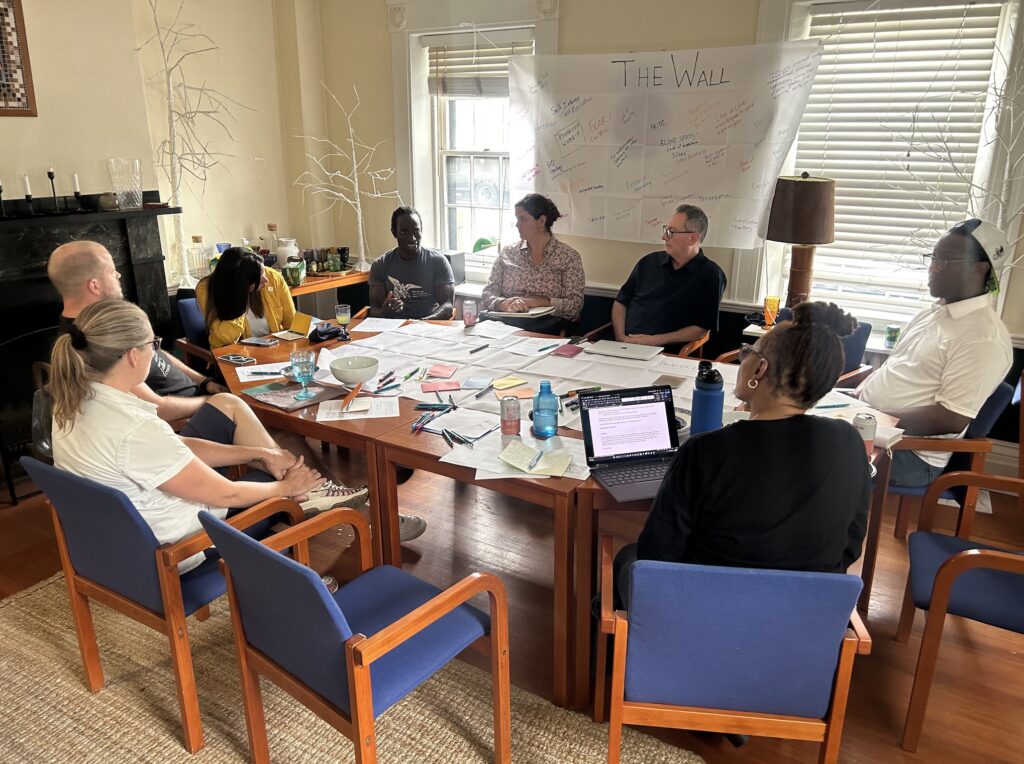
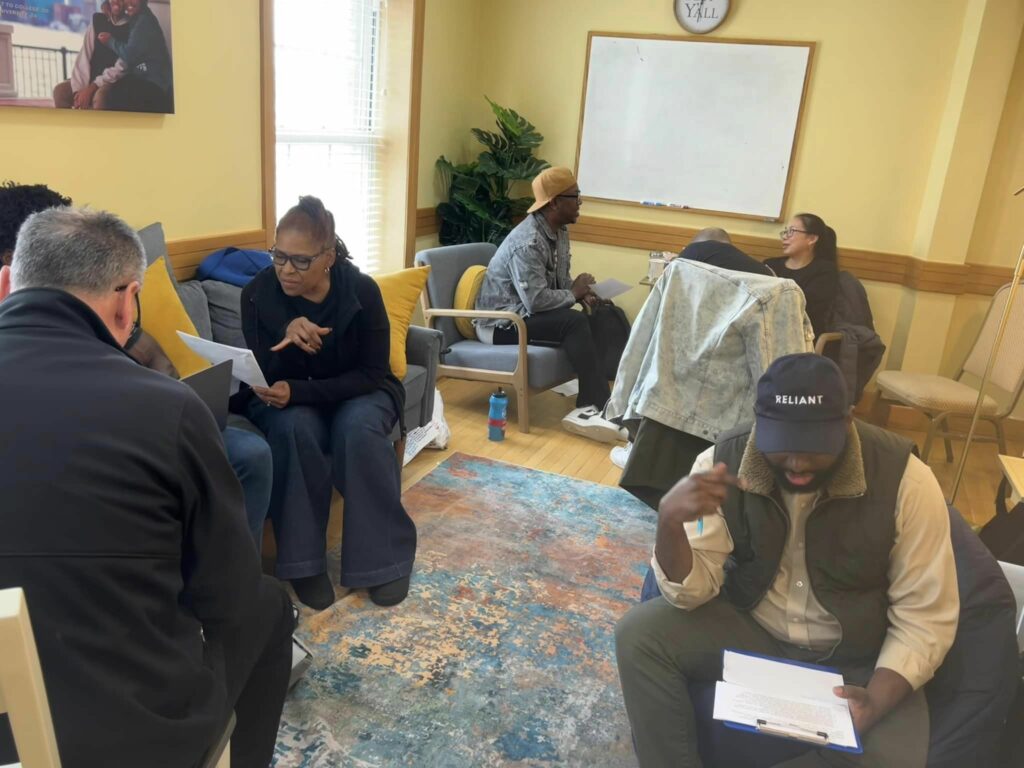
Our cohorts are integral to our journey towards unity. At UniteBoston, we understand that embodying the oneness Jesus calls Christians to goes beyond a surface level “oneness” that only speaks to our ‘unity in Christ.’ Rather, Biblical unity is “deep unity,” going towards the places of difference, divisions, and conflicts, to bring healing and repair, rather than avoiding them or focusing on what we all have in common. Reconciling people to God and one another is profound work that involves truth-telling and restoring relationships. While UniteBoston will still host occasional large gatherings, our primary focus is cultivating “ambassadors of reconciliation” through smaller, diverse cohorts of Christian leaders.
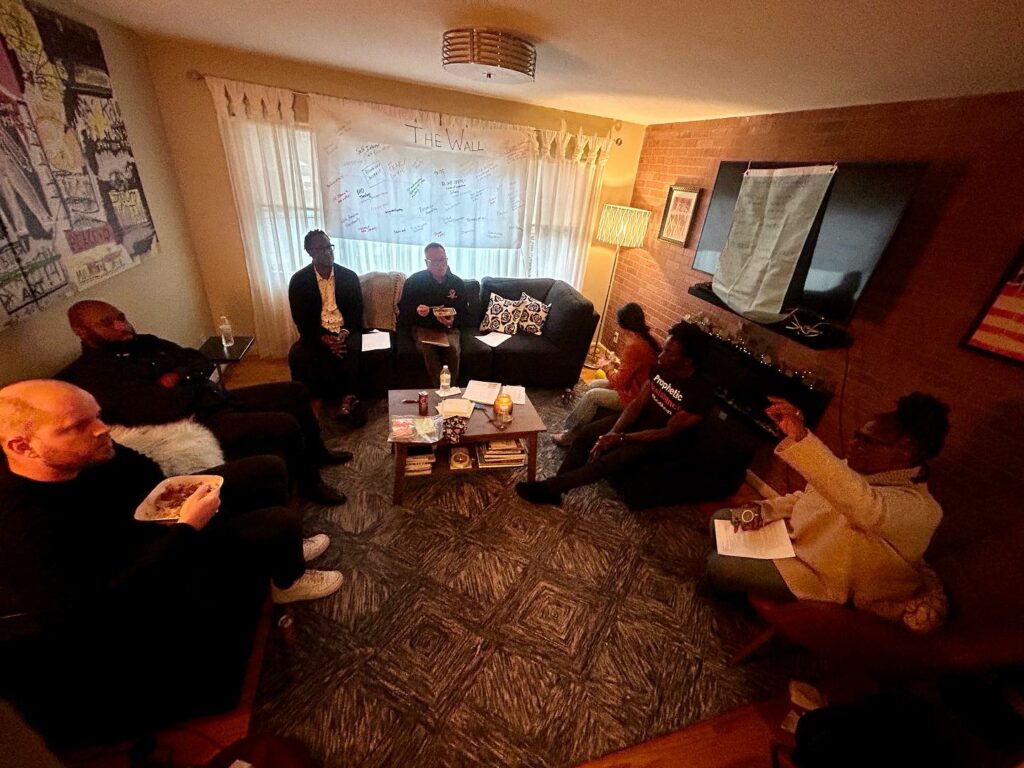
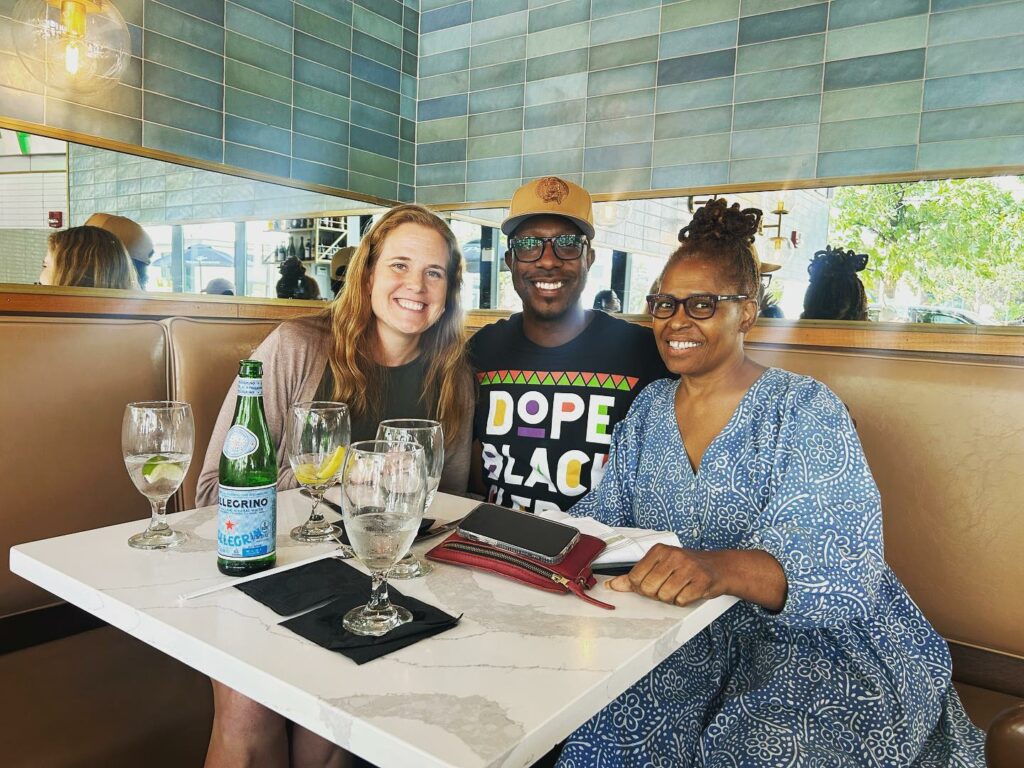

Our current two working groups will help us unpack these three barriers to Christian unity and co-create a curriculum that could be used by individuals or small group communities. The curriculum would incorporate opportunities for individuals to learn, experience, and practice stepping into places of division to bring reconciliation, repair, and healing.
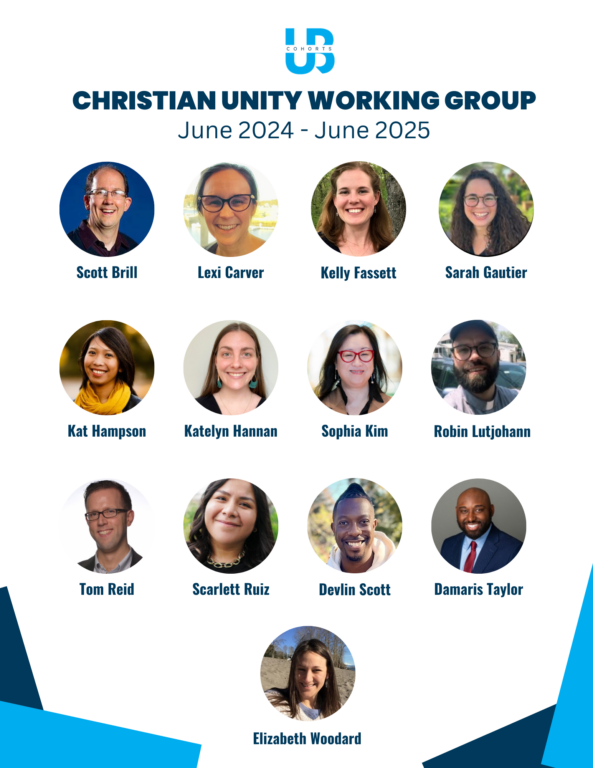
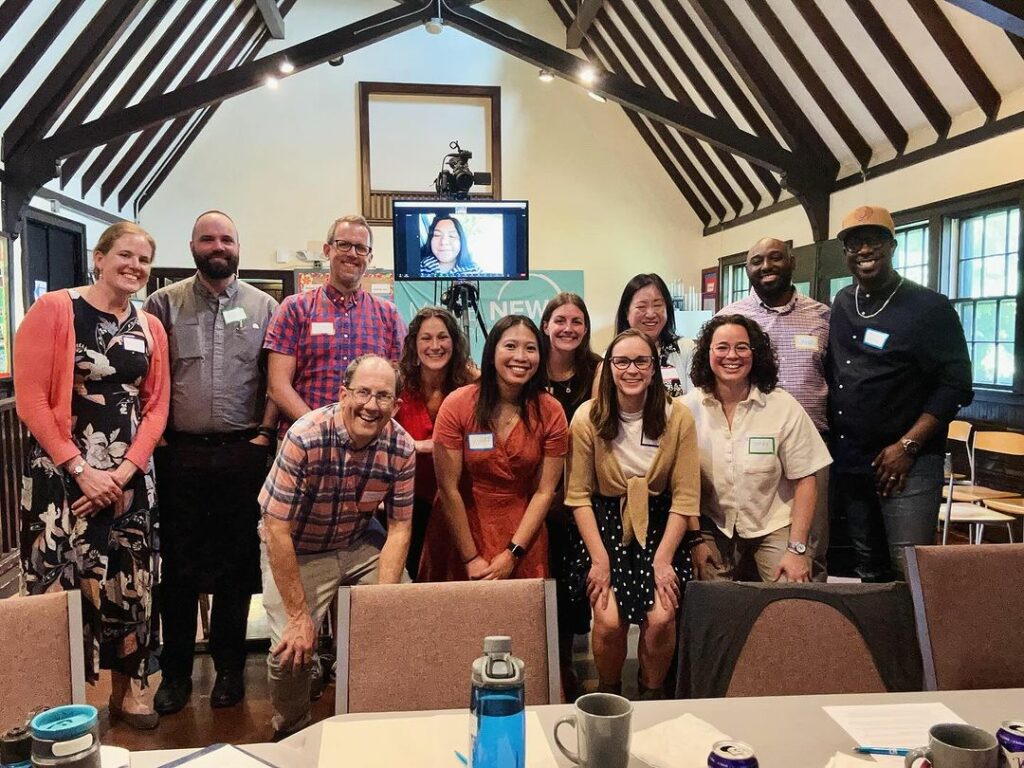
This cohort is developing a discipleship curriculum learning pathway to learn about nurturing “Christian unity” in their own contexts by being ambassadors of reconciliation and repair (2 Corinthians 5:18-20).
The curriculum will incorporate holistic forms of spiritual formation, including head knowledge content, spiritual practices, and practical application:
- Defining the principles and practices of “Christian unity,” addressing the barriers of imbalanced theology and righteous hubris
- Christian unity as a way of life that we can practice on a day-to-day basis, with friends, neighbors, coworkers.
- Beloved community: Rather than mimicking the divisions we see in society, modeling a different way as Christians embody the gospel and uphold an ethic of self-giving love

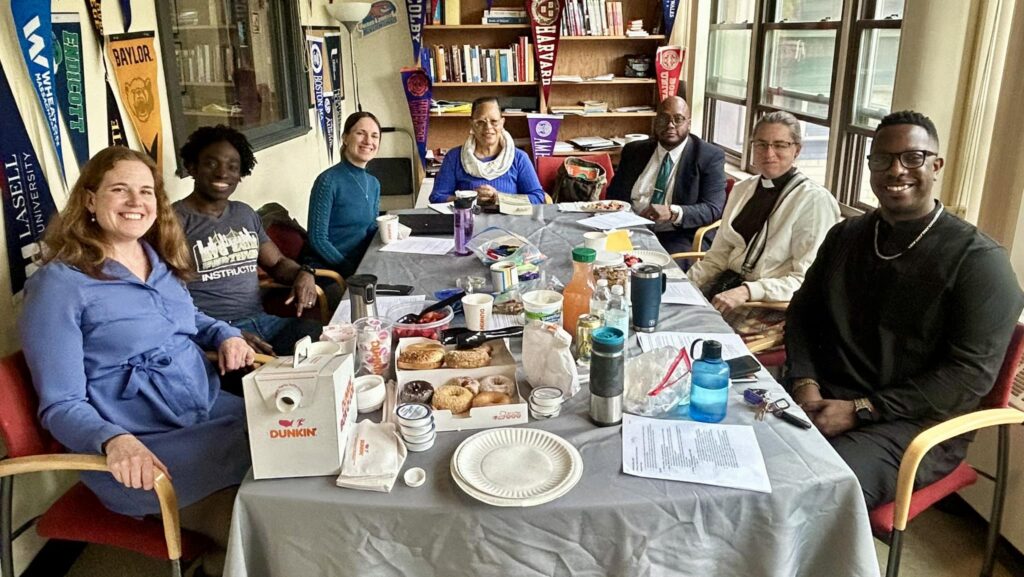
Sankofa is a Ghanan term conveying the need to learn from the past to inform the future. The legacy of racial division and slavery continue to impact our city interpersonally, institutionally, and systemically. It is a wound whose oppressive impacts prevent flourishing for many Boston residents; yet many do not see or acknowledge the problem. All too often, the Bible has often been used to justify the sin of racism. To not talk about this history allows sin to fester that further divides the body of Christ and distorts the Christian witness.
One step towards healing and repair is truth-telling. We must understand and confess the mistakes of our past – of the sin of racism and its impacts – in order to pave the way forward. This working group is exploring the history of racism in Boston and discovering what might be done to “reconstruct” a common memory for Christians in Boston. They are journeying together as a community of learners and practitioners to share personal stories, explore the history, interview local experts, and discern gaps. They will propose programmatic content and experiences for a “Boston Sankofa Journey” discipleship learning pathway which will bring together resources so individuals and communities can take steps towards learning, truth-telling, and repair towards racial healing and shalom in Boston. This will include including articles/ blogs/podcasts, living history interviews, reflective practices, creative modalities, communal experiences, community litanies, and reparative actions, as a holistic discipleship learning pathway to foster a greater sense of historical consciousness and racial repair towards shalom.

Christian Unity in the City Cohort: June 2023 to June 2024
Participants – From left to right: Michael James, Calvin Lee, Damaris Taylor, Jamie Mangiamelli, Devlin Scott, Kelly Fassett, Josh Wilson, Valerie Copeland, Rita Powell, Carolina de Jesus, Edwin Johnson, Kaitlin Ho Givens
This group of leaders courageously shared their stories of how they have experienced unity and disunity in the church and sought to understand how people are living out God’s call towards unity, justice and reconciliation. How can we embody and witness to the reality of the walls being torn down? What can we do to keep these walls of hostility from emerging? How can we bear witness to God’s shalom more fully?
Photos from our closing retreat:
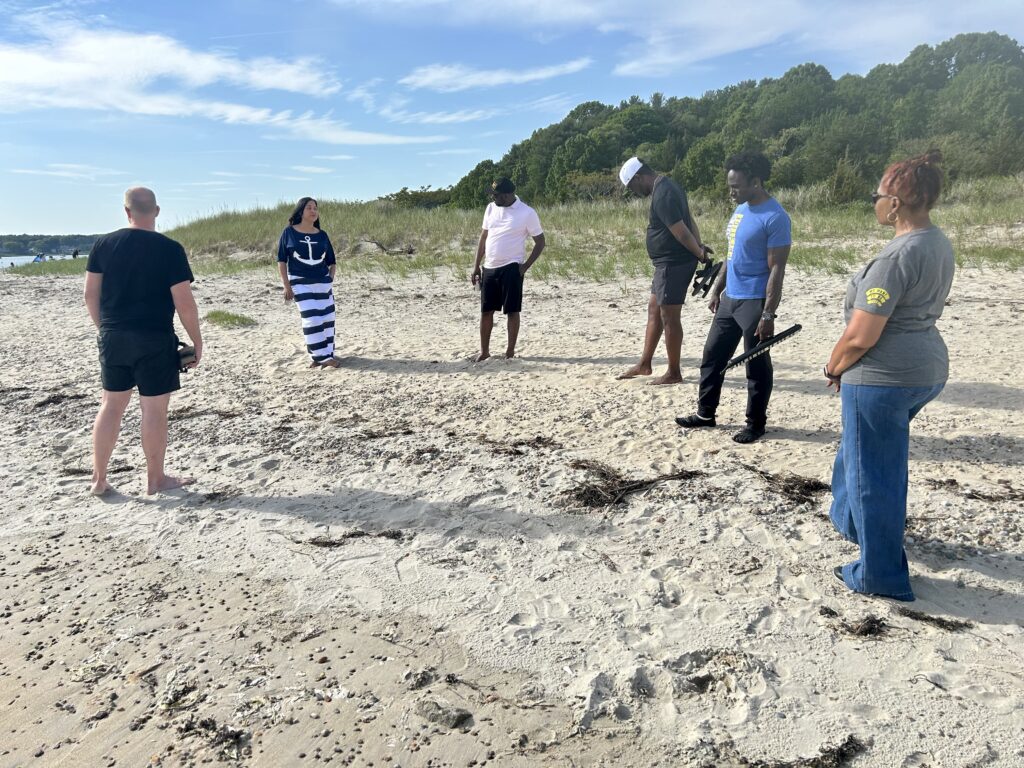
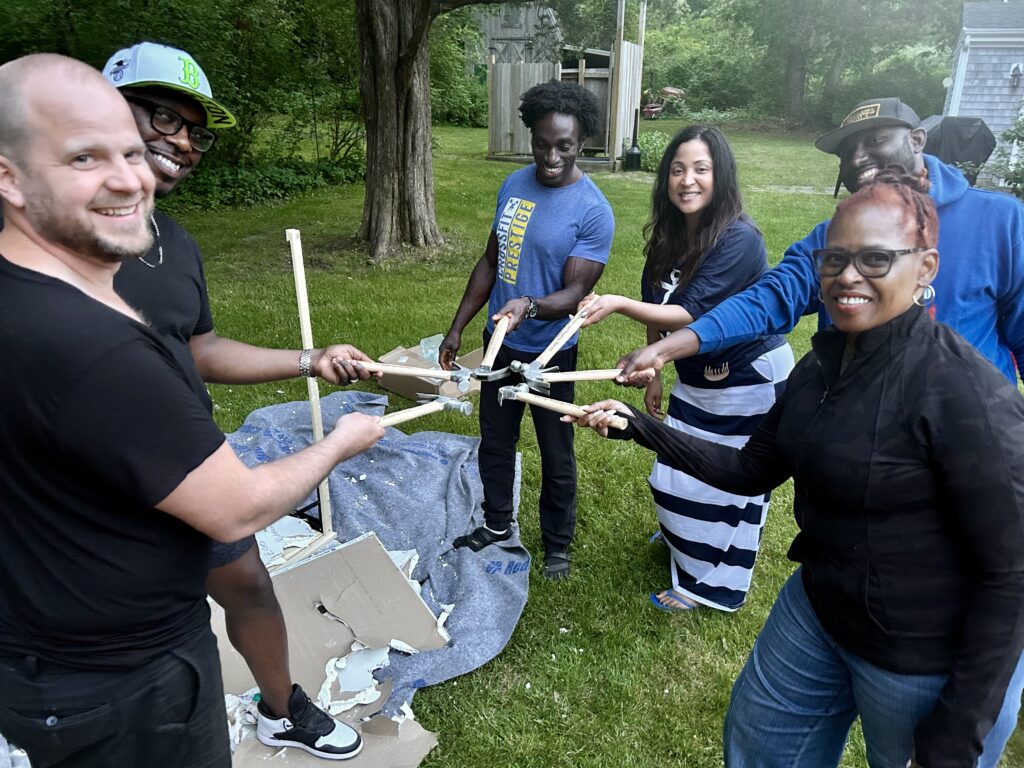
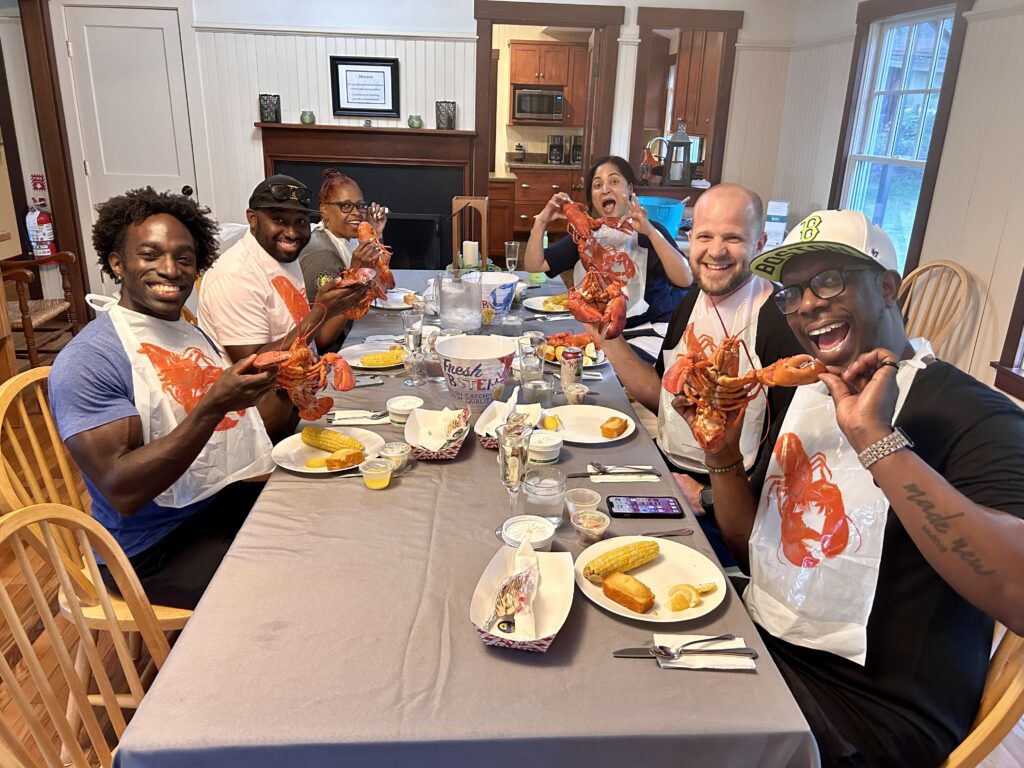
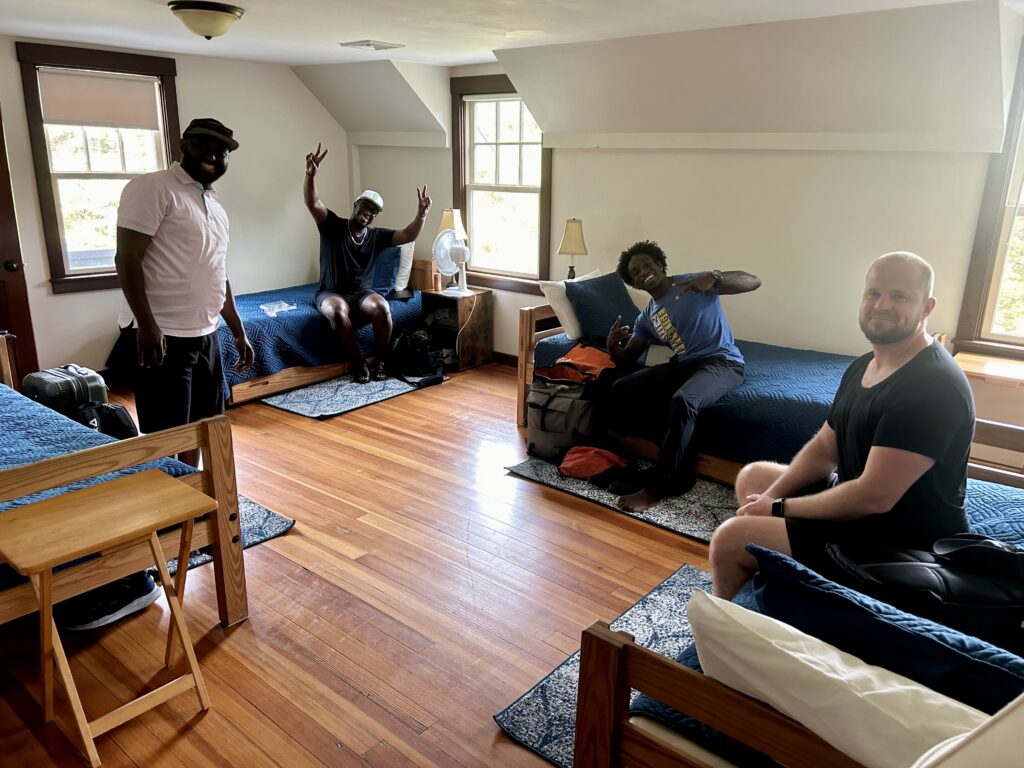
“Our journey this year has been a little bit like the road to Emmaus. That is, our gatherings have always been very rich and meaningful, a part of my walk this year, but like the disciples, it’s almost like as it comes to an end I see more clearly the presence of Christ in that walk together. The simple acts of gathering, sharing meals, and sharing stories might be some of the most important work that happened this year. I’m grateful to each member of the cohort and to Unite Boston for convening and holding such a gospel space.” – Rev. Rita Powell, Episcopal Chaplain at Harvard Divinity School
“What a gift to be led by Devlin, Kelly, and Pastor Val! It has been a joy to meet with other Christian leaders in the city and trace the lines of unity that bind us together.” – Pastor Kaitlin Ho Givens
“The individuals in our cohort are all so different; culturally, liturgically, and theologically. But as I’ve listened to the stories of God’s movement in the lives of each of these new friends, I’ve been awed by just how much we have in common: a love for Jesus, a devotion to his church, wounds in need of healing, a deep longing for the Kingdom, along with a lot of courage and faith. This journey and these people have reinforced my commitment to move from curiosity, my belief that we have so much to learn from each other, and my hope that the chasms that divide us can be bridged.” -Josh Wilson, Pastor at Reality Boston
“If the seed of Christian unity is our faith in Jesus, and the sunlight/water are our opportunities for joint ministry and mission, then the soil is most certainly our relationship and engagement with each other. The soil is aerated by our whole-hearted leaning into difference and disagreement with love. We are truly stronger together” – Edwin Johnson, Director of Organizing at Episcopal City Mission
“As a Roman Catholic, I am reminded that the Catholic Church made a fundamental shift in its vision of Christian Unity from Vatican I to Vatican II, moving from an ecumenism of “return” to an ecumenism of “recognition” – the recognition of an esteem for the many gifts of God’s Spirit that reflect a genuine communion of faith and life with other Christian churches. As a result of the journey that we have shared in our Christian Unity cohort, I am convinced that the personal and relational always come before the structural and institutional. Journeying out of our isolations; meeting, sharing meals, sharing our stories, getting to know and trust one another; establishing friendships— these cohort experiences of relationship form the climate in which both individual Christians and separated communities become open to, recognize and receive gifts of the Holy Spirit from one another. It is this kind of climate that I have witnessed with our Unity Cohort from which a passion for unity is cultivated and sustained. Symbolic gestures are important among church leaders, but relationships of trust and mutual affection have to grow among members of different churches as well if receptive ecumenism is to flourish.” -Michael James, Resident Minister and Faculty Member at Boston College
“In the Christian unity cohort, I found that our differences didn’t divide us; rather they made us connect more intentionally as we built friendships with one another. We don’t have to agree on all the things, but we can accept, love, and serve one another just like Jesus loved and served us.” -Carolina de Jesus, Chief Executive Officer at the Boston Higher Education Resource Center
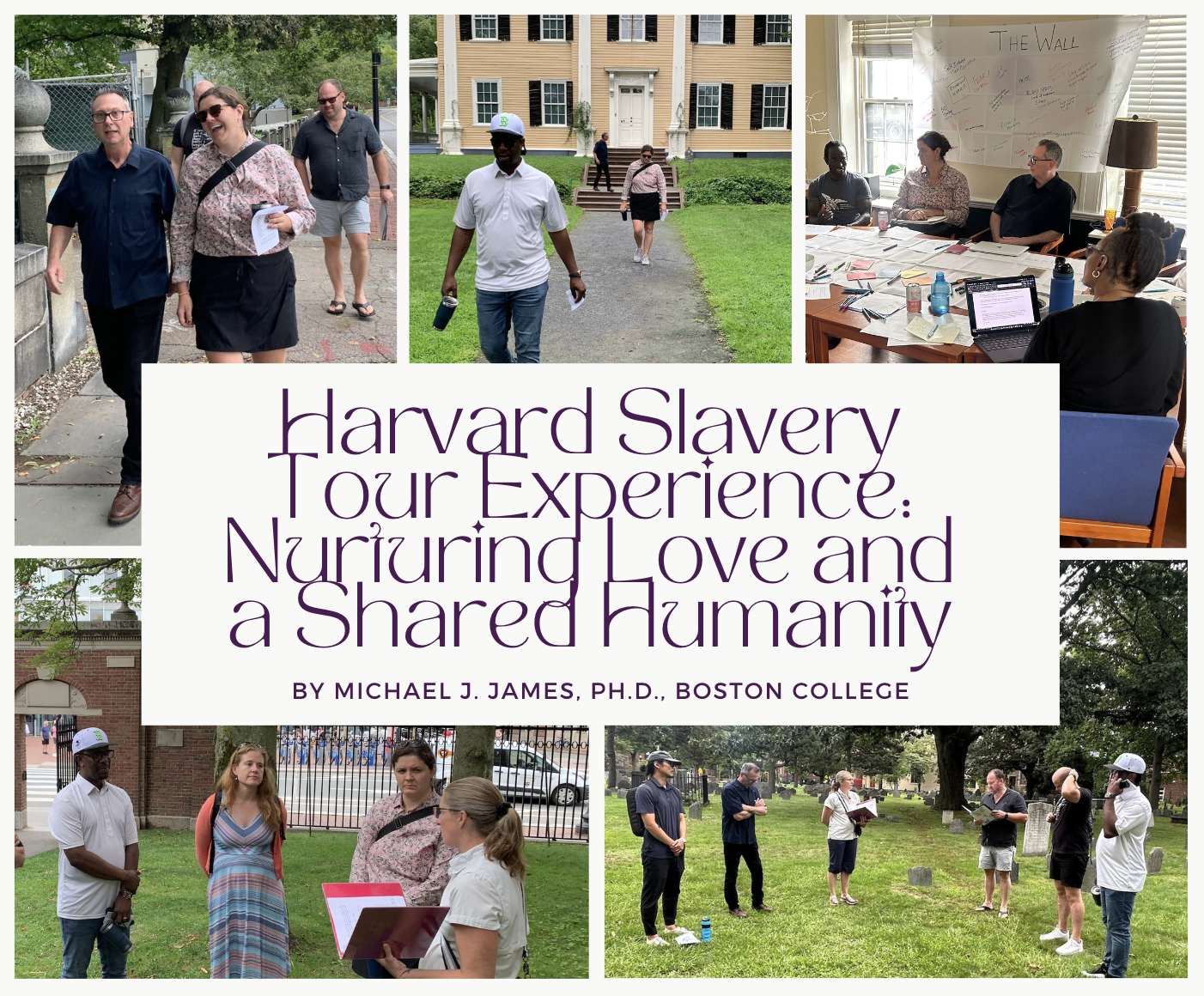
Our Christian unity cohort went on the Harvard Legacy of Slavery Tour which explores how the institution of Harvard has built on the legacy of slavery. Click on the image above to read Dr. Michael James’ blog, where he shares how his experience during the renewed his commitment to building unity through the “art of loving.”
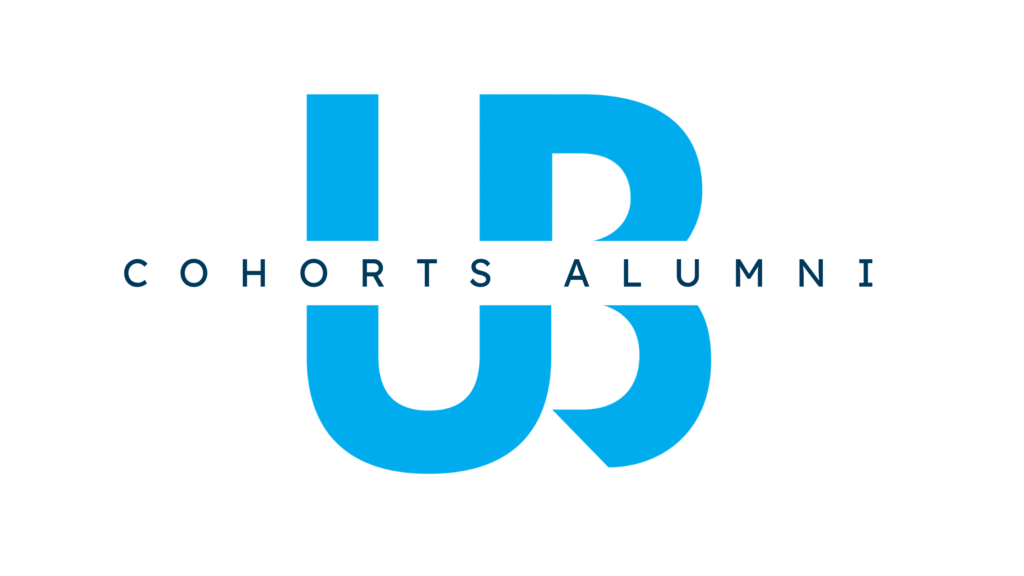
Class of 2023
Michael James
Calvin Lee
Damaris Taylor
Jamie Mangiamelli
Devlin Scott
Kelly Fassett
Josh Wilson
Valerie Copeland
Rita Powell
Carolina de Jesus
Edwin Johnson
Kaitlin Ho Givens